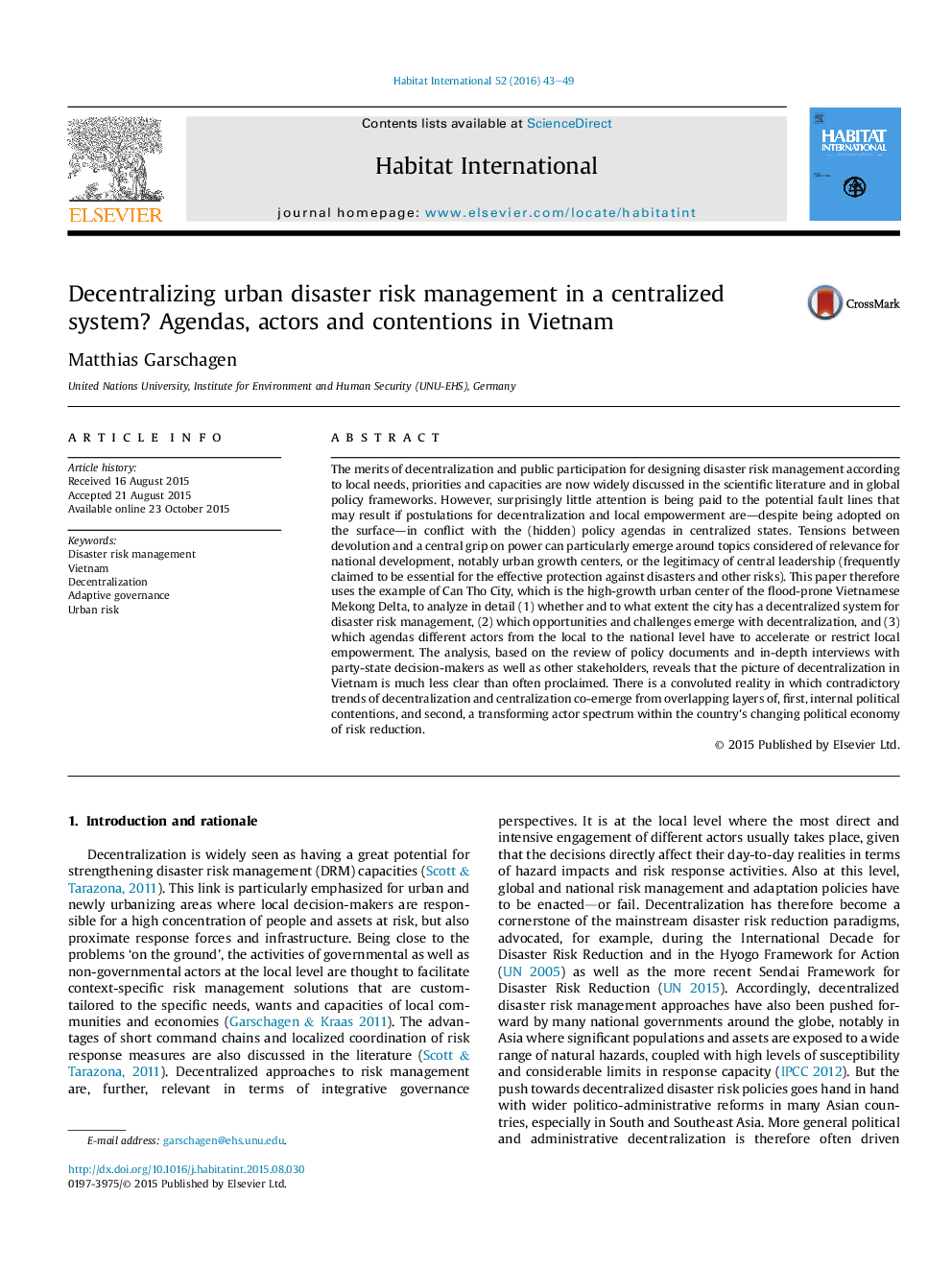| کد مقاله | کد نشریه | سال انتشار | مقاله انگلیسی | نسخه تمام متن |
|---|---|---|---|---|
| 1047725 | 1484491 | 2016 | 7 صفحه PDF | دانلود رایگان |
The merits of decentralization and public participation for designing disaster risk management according to local needs, priorities and capacities are now widely discussed in the scientific literature and in global policy frameworks. However, surprisingly little attention is being paid to the potential fault lines that may result if postulations for decentralization and local empowerment are—despite being adopted on the surface—in conflict with the (hidden) policy agendas in centralized states. Tensions between devolution and a central grip on power can particularly emerge around topics considered of relevance for national development, notably urban growth centers, or the legitimacy of central leadership (frequently claimed to be essential for the effective protection against disasters and other risks). This paper therefore uses the example of Can Tho City, which is the high-growth urban center of the flood-prone Vietnamese Mekong Delta, to analyze in detail (1) whether and to what extent the city has a decentralized system for disaster risk management, (2) which opportunities and challenges emerge with decentralization, and (3) which agendas different actors from the local to the national level have to accelerate or restrict local empowerment. The analysis, based on the review of policy documents and in-depth interviews with party-state decision-makers as well as other stakeholders, reveals that the picture of decentralization in Vietnam is much less clear than often proclaimed. There is a convoluted reality in which contradictory trends of decentralization and centralization co-emerge from overlapping layers of, first, internal political contentions, and second, a transforming actor spectrum within the country's changing political economy of risk reduction.
Journal: Habitat International - Volume 52, March 2016, Pages 43–49
